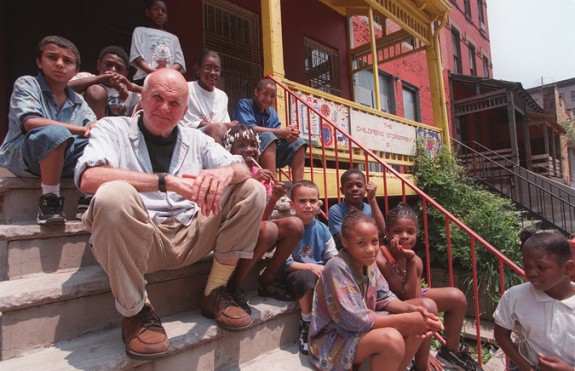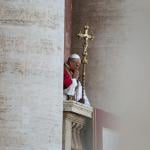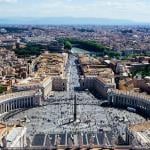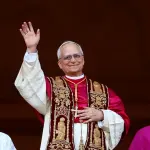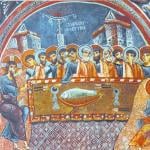This news broke while I was away this weekend. Ned O’Gorman represents part of a dying breed of social justice Catholics from the generation that counted among its heroes and contemporaries visionaries like Dorothy Day and Thomas Merton.
I learned this morning that his funeral will be held tonight at St. Paul the Apostle, the magnificent church of the Paulists near Manhattan’s Columbus Circle.
From The New York Times:
Ned O’Gorman, an award-winning poet who gained his widest attention for starting a storefront school in Harlem — a “liberation camp,” he called it — to bring literature, Latin and love to disadvantaged children, died on Friday at his home in Manhattan. He was 84.
The cause was pancreatic cancer, his sister, Patricia O’Gorman Schonfeld, said.
Mr. O’Gorman said he was inspired to open his school, in 1966, by reading radical education theorists like Paul Goodman. But the reality was simpler. “I was merely a fool poet,” he said, “with nothing but poetry in his bag, hoping the energy and joy that brought poems from chaos would carry me to the children.”
The school, the Children’s Storefront, has flourished in three adjoining townhouses on East 129th Street, becoming a fully accredited, tuition-free school with a $4 million budget and a student body of about 170 children, from prekindergarten through eighth grade…
…He said that after a trip to Europe, where he stayed in an Austrian monastery, he decided to be a priest but was twice rejected — by the rector at St. Joseph’s Seminary in Dunwoodie, N.Y., who told him he regarded poets as unstable, and by a Benedictine monastery after a psychological test. Mr. O’Gorman believed that the abbot suspected that he was gay.
In his early years Mr. O’Gorman, a tall man with a longshoreman’s build, lived in Greenwich Village, where he was active in Dorothy Day’s Catholic Worker Movement…
…By the mid-1960s, Mr. O’Gorman was literary editor of the Roman Catholic magazine Jubilee. He corresponded with intellectual luminaries like Susan Sontag and Thomas Merton and later collected their thoughts in the book “Prophetic Voices: Ideas and Words on Revolution” 1969). He was awarded two Guggenheim fellowships.
All the while he was searching for a way to combine his political, religious and poetic urges. He found it in Harlem, where he was working as a volunteer for a Catholic antipoverty program. As he told The Daily News of New York in 2006, a priest had challenged him: “There’s a storefront on Madison Avenue and 129th Street, and if you want to do something with it, you can have it.”
Mr. O’Gorman collected donations, using his social connections, and two months later started a children’s library in the store, naming it after Addie Mae Collins, one of four black children killed in the 1963 bombing of a church in Birmingham, Ala…
The enterprise reflected Mr. O’Gorman’s playful, rambunctious personality. His stated goal was the expansive one of reversing “the pervasive lack of imagination” in nurturing young minds, and he offered an eclectic program: French and Chinese lessons, classical music and Shakespeare, along with reading, writing and arithmetic.
To Mr. O’Gorman, each child — or “angelic spirit,” in his phrase — demanded special treatment. One boy couldn’t speak a word at age 3, but he had perfect pitch, so teachers used music to teach him the rudiments of speech.
Children responded by calling Mr. O’Gorman “Neddie Boy.” He hugged every child at the beginning of the day. If one failed to appear, he sent a car for him. When a reporter for The News asked what was so special about him, a girl named Willow replied, “Love.”
Eternal rest grant unto him, O Lord, and let perpetual light shine upon him…

